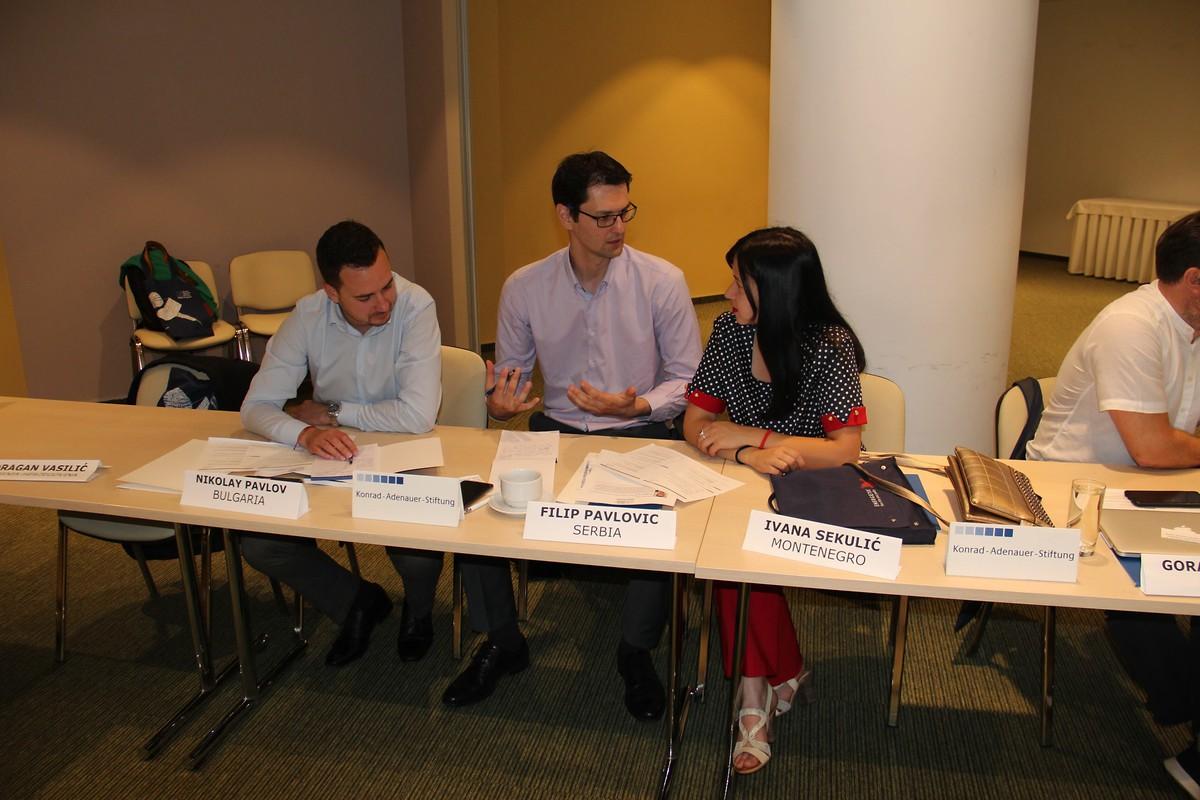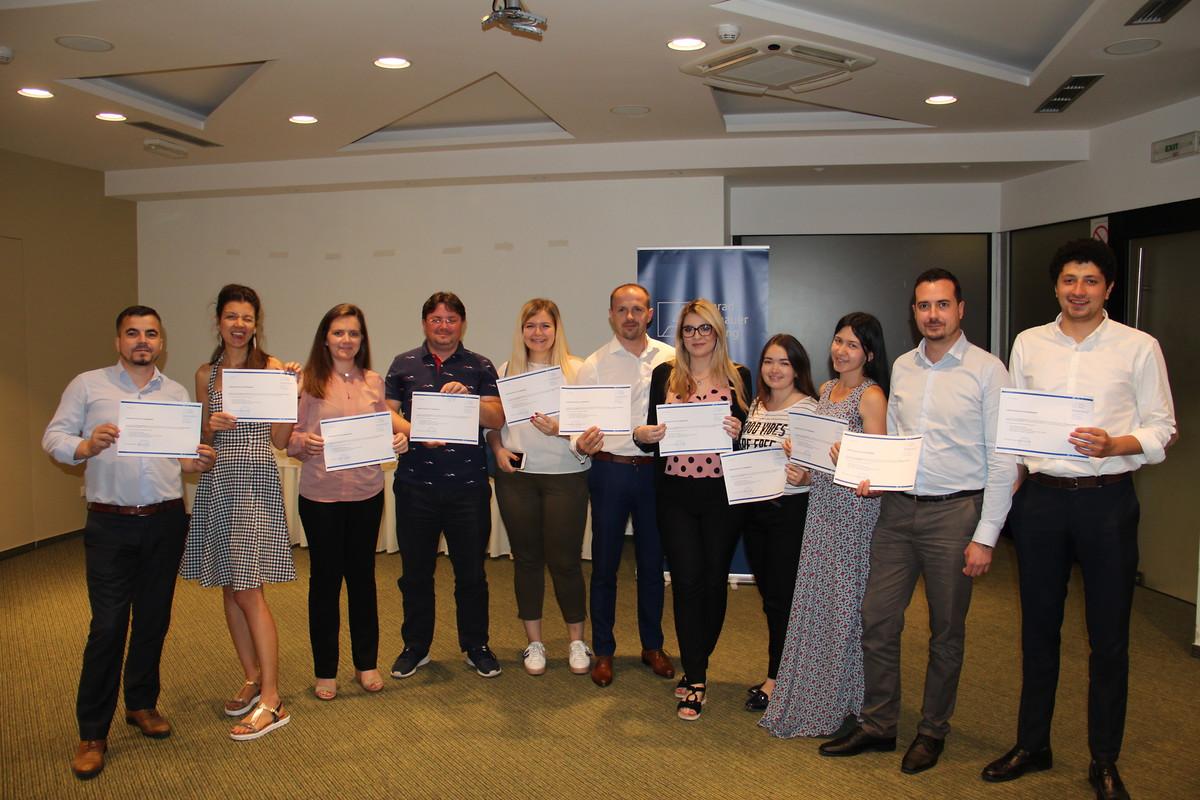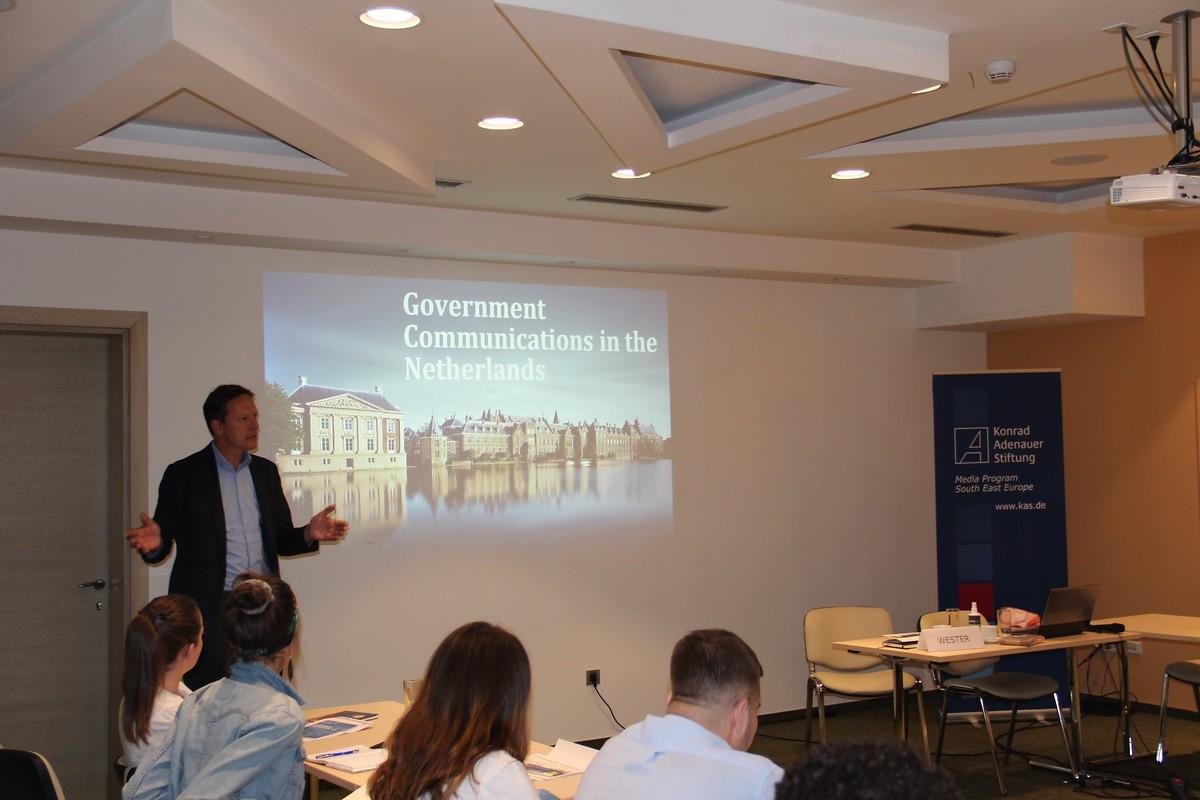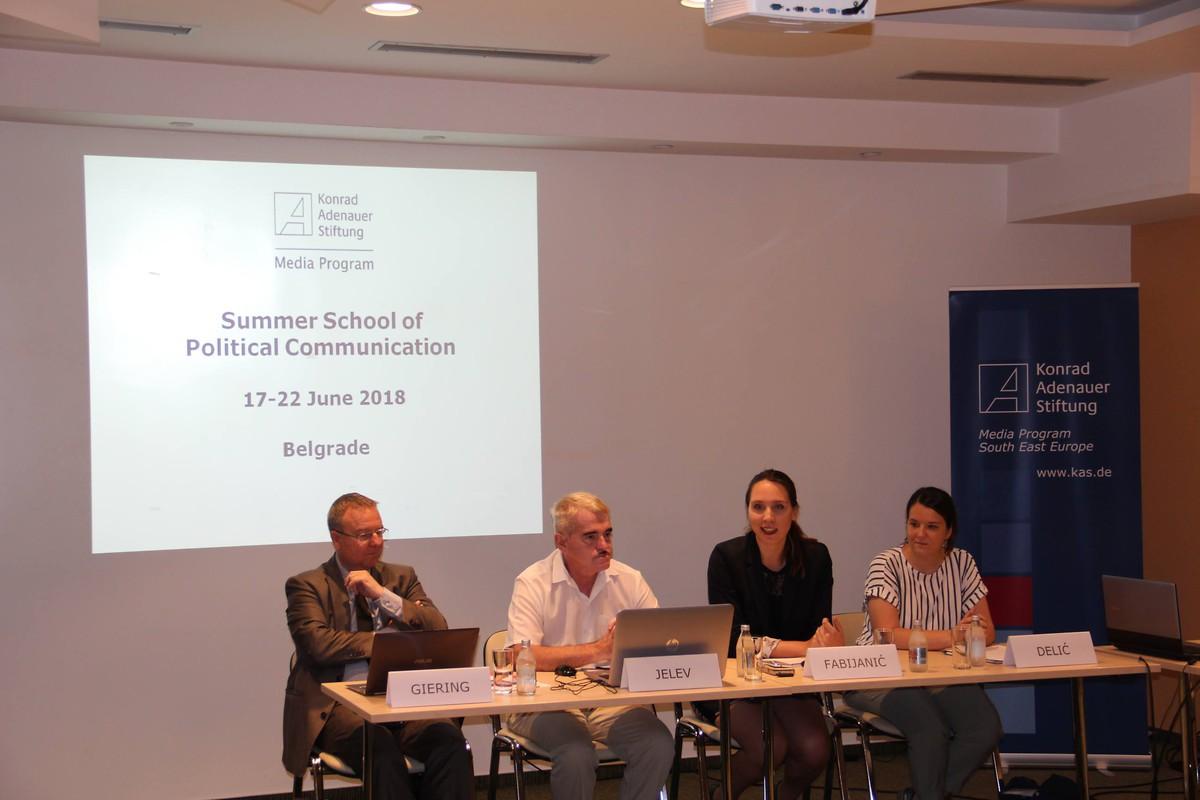For the second time the Media Program South East Europe of the Konrad-Adenauer-Stiftung (KAS) invited young PR experts to the Summer School of Political Communication. It took place from the 17th until 22nd June 2018 in Belgrade (Serbia). The participants from eight countries deepened their knowledge on strategic communication planning, online campaigns and citizen dialogue. Furthermore, they discussed the different challenges for governments and parties in terms of media relations as well as the possibilities to better communicate EU topics to citizens.
The Summer School was opened by Darija Fabijanić, Research Associate at the KAS Media Program South East Europe. She introduced the concept of the training and emphasised the challenges for spokes-persons of political parties and governments in the region. "In the digital era, people have more information on every aspect of their lives at their fingertips. They are thus asking for more transparency and opportunities for participation in political life," said Fabijanić. The participants were looking for an intensive exchange of ideas and experiences with colleagues from the region and trainers. These expectations were met during four intensive days of workshops and discussions.
Claire Pimm, Deputy Director of the British Government’s Communications Department, explained different elements of campaign planning and how it is structured. She did this with examples of campaigns of the British government. "The most important campaign part is the storytelling, because we communicate through stories," said Pimm. During the first day the participants were divided into four groups with the task to develop a fictional campaign during the week. Already on the first day the teams discussed their topics and how the knowledge taught by Claire Pimm could be used in practice.
Evaluation starts at the beginning of the campaign
On the second day of the training, Pimm showed the young professionals how to measure the success of a campaign. "The evaluation doesn’t begin at the end of the campaign. All campaign actions should be evaluated consistently," emphasised Pimm.
In the following session, Robert Wester, Head of the sector government and communications at the Dutch consultancy "Berenschot", presented the differences of party and government communication in referall to the situation in the Netherlands. He explained in particular new trends due to the digitalisation. "One of the biggest challenges is the democratisation of communication," said Wester. The different communication departments need to react to these changes adequately and adapt themselves.
Digital trends in election campaigns
On the next day, the main topics were digital communication and election campaigns. Political communication should consider marketing strategies, according to Anja Pfeffermann, responsible for Digital and Strategies at CDU headquarters in Berlin. She recommended: "In a communication point of view treat your party as a brand." Pfeffermann introduced how the CDU is using different social media channels and what the party has learned from previous campaigns. Thus, one of her tips was to not use channels, which are not contributing to any success.
Christian Zinke from the Communications and PR Agency "Praxisnah" based in Jena showed examples of political campaigns in Germany and how volunteers can be mobilised. Thereby he introduced the App "connect17" which the CDU used during the parliament elections 2017. During the second part, Diana Peuker, also from "Praxisnah", showed some Facebook tools which can be used to reach more users.
Making Europe tangible to citizens
During the last day of the seminar, a panel discussion on how to better communicate Europe took place. "It is important to communicate a euro-realistic message to the citizens," said Tamara Delić, Acting Assistant Minister of European Integration in the Department for Communications, Training and Preparation of the Serbian Version of the Acquis Communautaire. She emphasised that the biggest challenge is scepticism. "The citizens listen rather to a lie they understand than to the truth they don’t understand," noted Veselin Jelev, spokesperson for the Bulgarian EU presidency. He pointed out that Europe is often too complicated to be explained. This could be solved through the right story. "Messages in EU communication in different states can’t be fully aligned. There is a need for different messages for member states, candidate countries and the countries of the Eastern neighbourhood," explained Claus Giering, Head of Inter-institutional Relations and Communication at the Directorate-General for Neighbourhood and Enlargement Negotiations in the European Commission. The discussion was moderated by Darija Fabijanić.
Participants present their own campaigns
Subsequently, the participants had the task to work on their own campaigns and present them. The first group presented a presidential election campaign in a fictional country – with their candidate "Ivanna Ritz". The second team developed an information campaign on a social reform. The project had the goal to help young teachers at the beginning of their career to receive more easily a housing loan. The campaign was about informing the young teachers about this possibility. The third group prepared a campaign for a referendum which was oriented towards an ongoing debate in Romania. Currently, there are discussions going on to introduce a referendum for a constitutional change, to prevent a future law on same-sex marriages. The last team introduced an environmental campaign in a fictional city with the goal of getting people to use the eco-friendly services in the city.
In a feedback session, the participants said that they received a lot of professional input during the seminar and that the practical exercises were particularly helpful.










